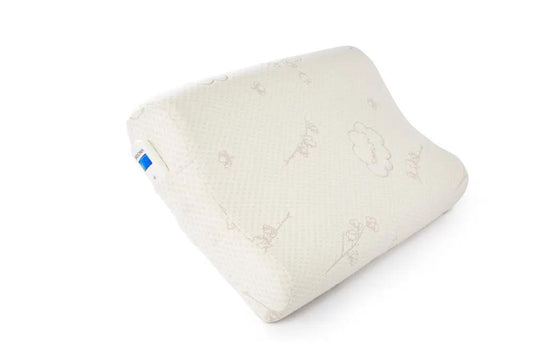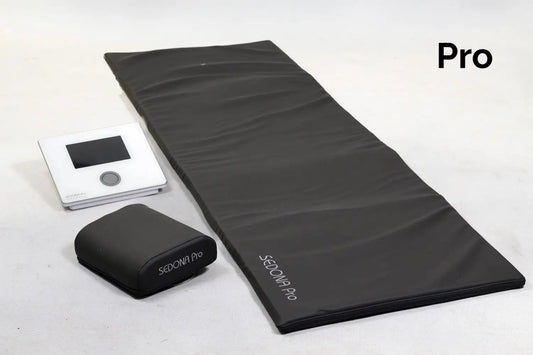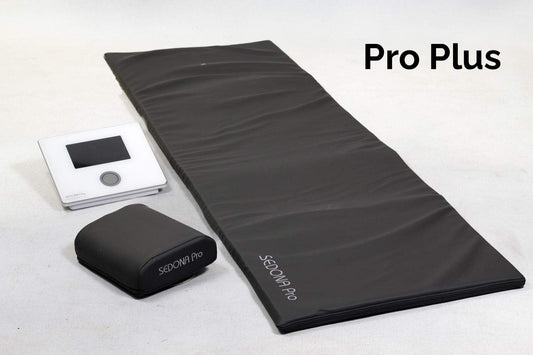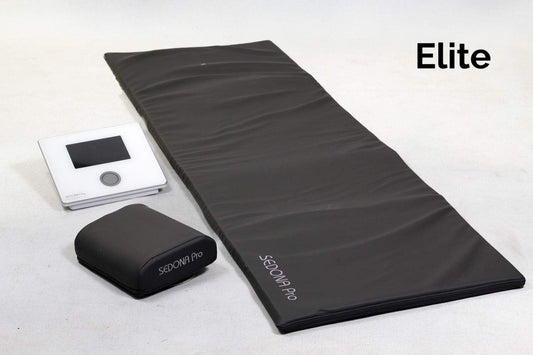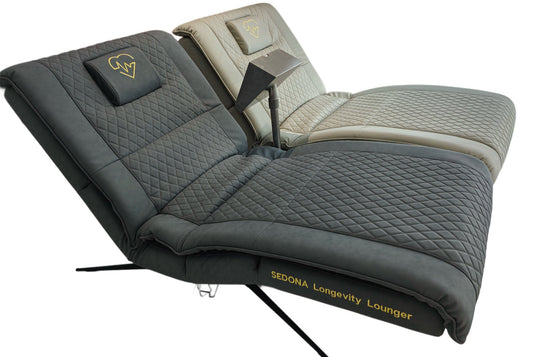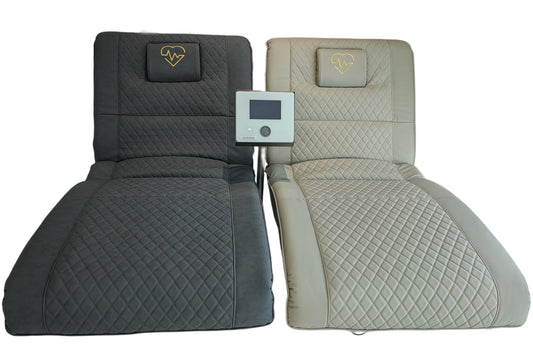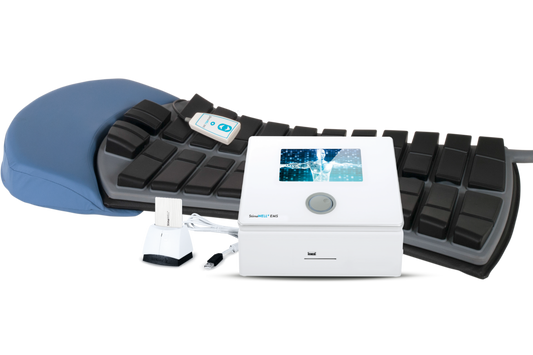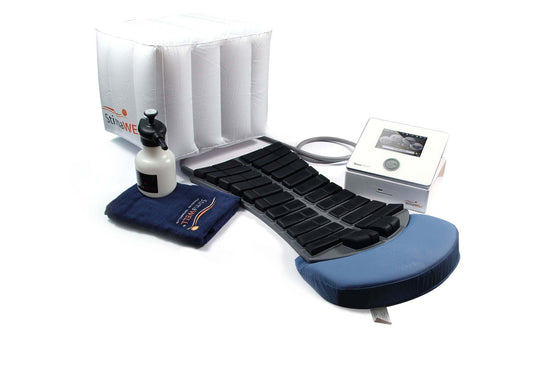
PEMF THERAPY FOR ASTHMA
PEMF (Pulsed Electromagnetic Field) therapy offers an innovative, non-invasive approach to managing asthma, a common respiratory condition characterized by inflammation and narrowing of the airways, which can lead to symptoms like wheezing, shortness of breath, chest tightness, and coughing. By using a PEMF mat, individuals with asthma may experience relief from symptoms and improvements in respiratory function. Here's a detailed look at how PEMF therapy can aid in managing asthma and why investing in a PEMF mat could significantly enhance your respiratory health.
Understanding Asthma and PEMF Therapy
Asthma is often managed with the use of inhaled corticosteroids and bronchodilators, which reduce inflammation and open the airways. However, some individuals continue to experience symptoms despite using these treatments. PEMF therapy provides a supplementary treatment option by targeting cellular activity, which can influence inflammation and immune response—key factors in asthma management.
How PEMF Therapy Helps with Asthma
Reduction of Airway Inflammation:
Inflammation is a primary component of asthma. PEMF therapy has been shown to reduce inflammation by influencing the electrical charges of cell membranes, encouraging cells to return to a normal state, and reducing the release of inflammatory cytokines. This can help alleviate the chronic inflammation in the airways characteristic of asthma.
Enhancement of Immune Regulation:
Asthma can be triggered by allergic reactions which are responses of the immune system. PEMF therapy may help modulate the immune system, reducing hypersensitivity to allergens, and potentially decreasing the frequency and severity of asthma attacks.
Improvement in Overall Respiratory Function:
PEMF therapy can enhance the functioning of respiratory tissues by improving blood circulation and increasing tissue oxygenation. This can lead to better overall lung capacity and more efficient breathing, which is especially beneficial for individuals with asthma.
Stress Reduction:
Stress is a known trigger for asthma exacerbations. PEMF therapy promotes relaxation and helps reduce stress, which can prevent or reduce the severity of asthma attacks triggered by stress.
PEMF MAT BENEFITS FOR ASTHMA
Our PEMF mat is specifically designed to provide maximum therapeutic benefits for individuals with asthma:
Broad Coverage:
The large surface area of the mat allows for a comprehensive approach, targeting the whole body, which can be beneficial in addressing systemic inflammation and immune responses that affect asthma.
Customizable Settings:
The intensity and frequency of the PEMF treatment can be adjusted to cater to specific needs, making it a versatile tool for asthma management for various individuals, including those with mild to severe symptoms.
Ease of Use:
Our PEMF mat is designed for everyday use in the comfort of your own home, enabling regular therapy sessions that integrate seamlessly into your routine without the need for ongoing clinical visits.
Safety and Comfort:
Manufactured with high-quality, non-toxic materials, our mat is built for safety and comfort, ensuring a positive experience during each therapy session.
CONCLUSION
Incorporating a PEMF mat into your asthma management plan offers a promising way to enhance traditional treatments. By reducing inflammation, regulating immune function, improving respiratory efficiency, and managing stress, PEMF therapy can significantly improve your quality of life and control of asthma symptoms.
RECOMMENDED PROGRAMS
If you already own one of our PEMF Mats we recommend these programs for Asthma:
-
SEDONA PRO/PRO PLUS PEMF MAT
Relax: 1, 2, 3, 4, 5
-
SEDONA ELITE PEMF MAT
Wellness: 1, 2, 4
STUDIES
-
Read Study
PubMed - The effect of the pulsatile electromagnetic field in patients suffering from chronic obstructive pulmonary disease and bronchial asthma
-
Read Study
PudMed - The effect of the pulsatile electromagnetic field in children suffering from bronchial asthma
SEDONA WELLNESS PRODUCTS
-
SEDONA PEMF FACEMASK
Vendor:Sedona Wellness4.75 / 5.0
(4) 4 total reviews
Regular price $390.00 USDRegular priceUnit price / per -
TIMMYZZZ PEMF PILLOW
Vendor:Sedona Wellness4.67 / 5.0
(3) 3 total reviews
Regular price $390.00 USDRegular priceUnit price / per -
SEDONA PRO PEMF MAT
Vendor:Sedona Wellness5.0 / 5.0
(12) 12 total reviews
Regular price From $5,900.00 USDRegular priceUnit price / per -
SEDONA PRO PLUS PEMF MAT
Vendor:Sedona Wellness5.0 / 5.0
(8) 8 total reviews
Regular price From $6,900.00 USDRegular priceUnit price / per -
SEDONA ELITE PEMF MAT
Vendor:Sedona Wellness5.0 / 5.0
(20) 20 total reviews
Regular price From $7,900.00 USDRegular priceUnit price / per -
SEDONA PEMF CHAIR
Vendor:Sedona WellnessRegular price From $16,900.00 USDRegular priceUnit price / per -
STIMAWELL EMS BACK MAT
Vendor:Sedona WellnessRegular price $16,900.00 USDRegular priceUnit price / per -
LONGEVITY LOUNGER PEMF BED
Vendor:Sedona WellnessRegular price From $21,900.00 USDRegular priceUnit price / per




